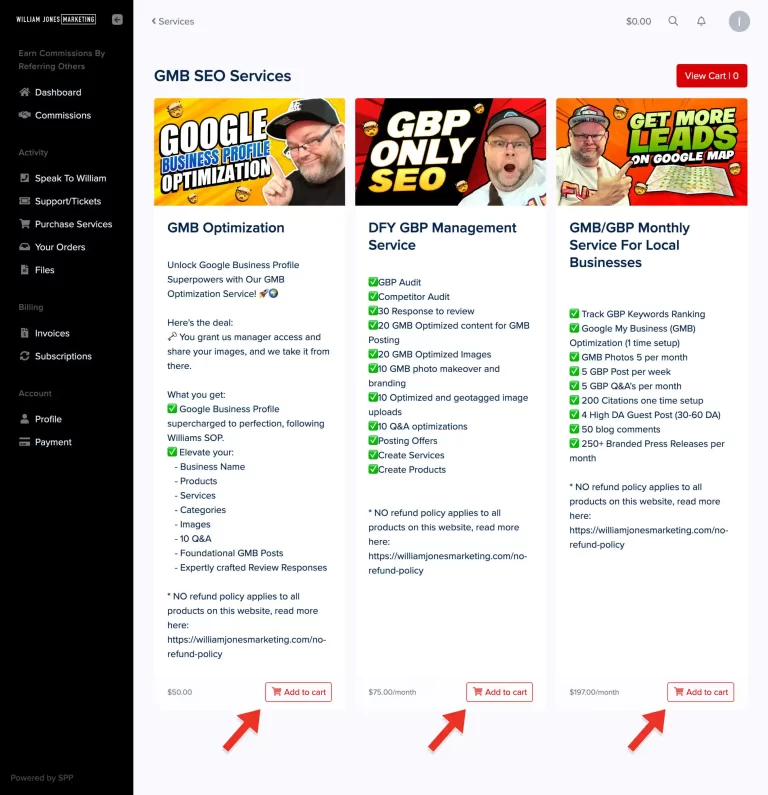
In today’s digital landscape, local businesses rely heavily on Google My Business (GMB) to enhance their online visibility and attract local customers. However, managing GMB effectively requires expertise in local SEO strategies that can be challenging for many businesses to handle in-house. This is where partnering with a reputable White Label GMB SEO provider becomes crucial.
Understanding Your Needs
Before selecting a White Label GMB SEO provider, it’s essential to assess your business’s specific needs. Consider factors such as your target audience, geographical reach, and business goals. Are you looking to improve local rankings, increase customer engagement, or manage multiple GMB listings efficiently? Clarifying these objectives will help you find a provider whose services align closely with your requirements.
Expertise and Experience
Look for a provider with a proven track record in GMB SEO services. They should have experience in optimizing GMB profiles, managing local citations, enhancing business listings, and leveraging Google Maps effectively. Check their client testimonials and case studies to gauge their success in improving local search rankings and driving organic traffic for businesses similar to yours.
Consider reviewing client testimonials, case studies, and portfolio samples to gauge their effectiveness in improving local search rankings and driving organic traffic. A provider’s success stories can provide insights into their approach, methodologies, and the results they’ve achieved for businesses similar to yours. Additionally, inquire about their familiarity with Google Maps optimization, local citation management, and strategies for maximizing GMB features like posts, reviews, and Q&A sections.
Furthermore, assess their understanding of the latest trends and updates in local SEO and Google’s algorithm changes. An experienced provider will stay abreast of industry developments and adapt their strategies accordingly, ensuring your GMB profiles remain competitive and compliant with Google’s guidelines.
Comprehensive Service Offerings
A reliable White Label GMB SEO provider should offer a comprehensive range of services tailored to enhance your GMB presence. This may include optimizing GMB profiles with accurate business information, implementing local SEO strategies, managing reviews and ratings, and ensuring NAP (Name, Address, Phone number) consistency across all platforms.
GMB Profile Optimization
Ensure the provider optimizes your GMB profile with accurate and up-to-date business information. This includes verifying business details like name, address, phone number (NAP), and ensuring consistency across all platforms.
Local SEO Strategies
Implement effective local SEO strategies tailored to enhance your visibility in local search results. This may involve keyword optimization, creating localized content, and improving geo-targeted keyword rankings.
Google Maps Optimization
Maximize your presence on Google Maps through strategic optimizations. This includes geo-tagging images, using relevant keywords in business descriptions, and ensuring your business location is accurately pinned on the map.
Review Management
Manage and monitor customer reviews and ratings on your GMB profile. A good provider will help generate positive reviews, respond to customer feedback promptly, and mitigate any negative reviews effectively.
Local Citation Management
Ensure consistent NAP data across all local citations and directories. The provider should manage your business listings on platforms like Yelp, Yellow Pages, and other relevant directories to enhance local SEO authority.
Competitor Analysis
Conduct thorough competitor analysis to identify opportunities and gaps in your local SEO strategy. This involves analyzing competitor GMB profiles, keyword strategies, and online presence to refine your own approach.
Transparency and Communication
Effective communication is key to a successful partnership. Choose a provider who values transparency and keeps you informed about the strategies implemented, performance metrics, and ongoing optimizations. They should be responsive to your queries and provide regular updates on the progress of your GMB SEO campaigns.
In selecting a White Label GMB SEO provider, prioritize transparency and communication as critical factors in fostering a productive and successful partnership. At Rank Fortress, we emphasize clear reporting, responsive support, strategic alignment with your business goals, and adherence to ethical SEO practices to ensure your GMB listings thrive in local search results
Scalability and Flexibility
Consider the scalability of the services offered. As your business grows, your GMB SEO needs may evolve. Ensure that the provider can accommodate these changes and offer scalable solutions that adapt to your expanding requirements. Flexibility in service delivery and customization options are also advantageous, allowing you to tailor strategies based on seasonal trends or specific marketing initiatives.
Flexibility is equally important. A reputable provider understands that every business is unique and may require customized solutions. They should offer flexible service packages that can be tailored to specific goals or seasonal campaigns, allowing you to optimize your GMB presence strategically. This flexibility ensures that your SEO strategies remain adaptable to market changes and emerging trends, maximizing the impact of your local search efforts.
Compliance with Google Guidelines
Adherence to Google’s best practices and guidelines is non-negotiable in GMB SEO. Verify that the provider follows ethical SEO practices and avoids any techniques that could potentially result in penalties or loss of visibility on Google. A reputable provider will prioritize long-term sustainability and organic growth for your GMB listings.
Conclusion
Choosing the ideal white label GMB SEO provider can significantly impact your business’s local search visibility. At Rank Fortress, based in the USA, we understand the importance of partnering with experts who can optimize your Google My Business profile effectively. Whether you’re enhancing local SEO rankings or aiming for increased customer engagement, our team is dedicated to delivering tailored solutions that align with your business goals.
Contact us at (904)770-5783 to learn more about how our specialized services can elevate your online presence and drive growth in your target market.

